“Being in a place that has experienced a disaster is not just witnessing destruction. It is witnessing the power of the human spirit to rebuild, reimagine and rise stronger than ever before.”


“Being in a place that has experienced a disaster is not just witnessing destruction. It is witnessing the power of the human spirit to rebuild, reimagine and rise stronger than ever before.”

“Why do people visiting and oftentimes living in Western North Carolina insist on driving in the left-hand passing lane when the right-hand driving lane is open?

This installment of WTF explains what regional councils are and what they do by exploring the impact of Western North Carolina’s Land of Sky Regional Council on the area.

Federal Treasury data shows that about half of the American Rescue Plan Act funds spent in WNC counties has been used on staff salaries. Nearly $98 million is still available to be allocated.

“Ask all patriotic gun owners in Western North Carolina to send their excess firearms to the brave Ukrainian resistance fighters. That way, these guns could kill more war criminals and less fellow Americans.”
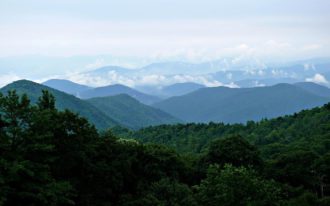
For months, the CEO of the Cherokee Indian Hospital has quietly traveled to county commission boards throughout the western part of the state, giving presentations on the benefits of Medicaid expansion. As local leaders throughout the conservative region show support for the policy, will they change the minds of state Republicans?

Masks are required, bars are closed and isolation fatigue is setting in. As Buncombe enters this new phase, Xpress took a look at the COVID-19 stats — both in Western North Carolina and in some likely points of origin for short-term visitors.
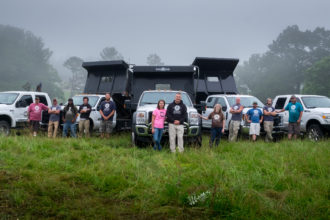
In early January, Just Economics raised its living wage rate for Buncombe County by 65 cents, to $12.15 per hour for workers with employer-provided health insurance and $13.65 for those without insurance.
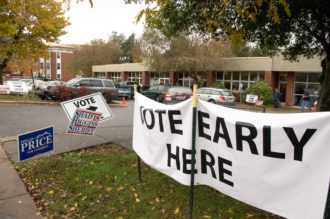
Despite concern that a state law passed in June could stifle early voting numbers, counties in Western North Carolina have seen turnout more consistent with a presidential election than a midterm.

“Not to go all Revelations or Jeremiah on you, but just because Denzel Washington isn’t roaming an apocalyptic landscape that used to be Western North Carolina with a 12-gauge pump or we’re not warming ourselves over piles of garbage and chasing rats doesn’t mean that the end isn’t near.”
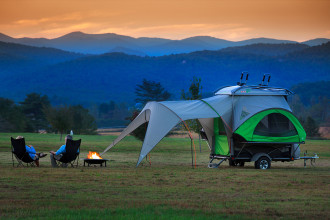
Sylvan Sport founder Tom Dempsey says the inspiration for his company’s adventure camping trailers comes from spending time outdoors — and there’s no better place to find inspiration than this area. “We couldn’t do what we do anywhere else,” he says.

On Sunday, July 1, Momentum Gallery will debut its exhibit, Reflections, as part of Summer of Glass series.
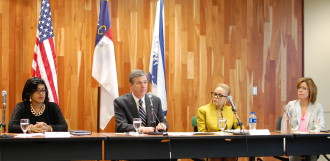
At an April 23 meeting of his cabinet at UNC Asheville, North Carolina Gov. Roy Cooper brought state leadership to the Western part of the state for a special focus on the issues and perspectives of the region.

The contract dispute between Blue Cross Blue Shield and Mission Health put many locals in an awkward position: risk out-of-network rates at Mission or find a more Blue Cross-friendly alternative.
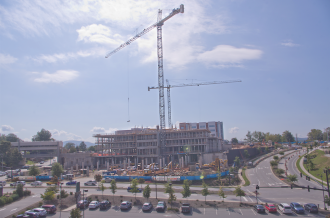
Mission Health President and CEO Ron Paulus has touted one of the system’s current construction projects, the Mission Hospital for Advanced Medicine, as the single biggest investment in the history of Western North Carolina.

“Looking for creative businesses that don’t require raw materials to be shipped in and products to be shipped out means that we can minimize our greatest weakness while working on our strengths.”

“There is a difference between memory and celebration, and most Confederate monuments are less about memory and more about the celebration of white supremacist control.”
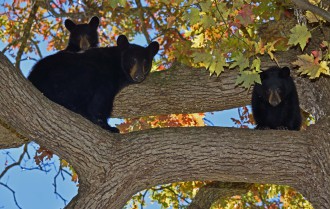
Over the last 40 years, the black bear has experienced a steady and stable rise, even as they continue to lose their natural habitats to development. This is particularly true in Asheville. Can a peaceful existence continue between man and bear?

“Unfortunately, the evaluation released by the Forest Service reduces the total acreage eligible for wilderness recommendation in the new forest plan by more than 80 percent. “
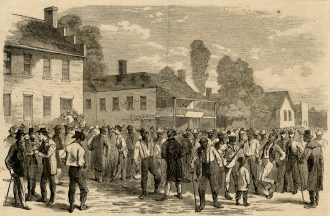
“Unquestionably,” writes Judge Motz in the fourth circuits repeal of the voter ID law, “North Carolina has a long history of race discrimination generally and race-based vote suppression in particular.” Some argue this history remains largely unknown. Others argue voter fraud is the greater issue, not history.

“Much remains to be settled regarding the exact governance of our revolutionary state, but I suspect with time we could form a pluralistic democracy akin to the one found in North Carolina not long ago.”